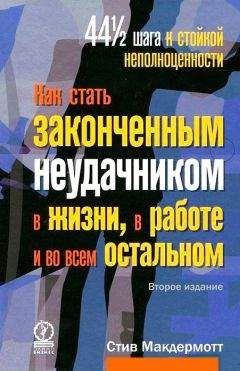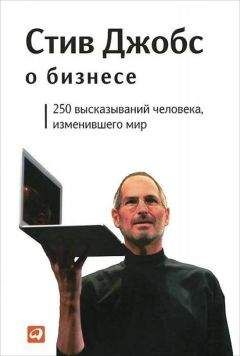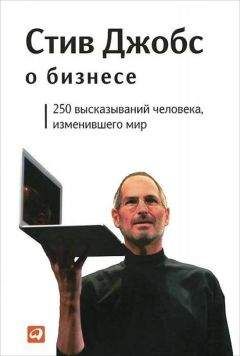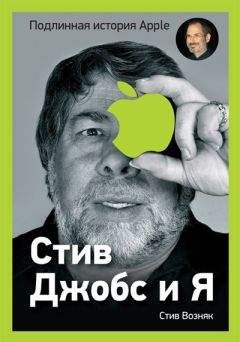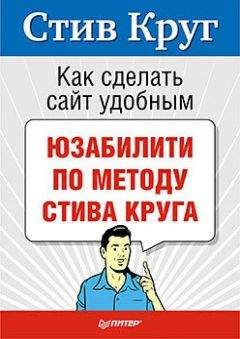Михаил Сарапов - Английский для смелых. Истории о духах и привидениях / Great Ghost Stories
The murder had been a deed of peculiar horror, and there was nothing of sympathy in the mind of the public towards the perpetrator. Charles Linkworth, who now lay under capital sentence, was the keeper of a small stationery store in Sheffield, and there lived with him his wife and mother. The latter was the victim of his atrocious crime; the motive of it being to get possession of the sum of five hundred pounds, which was this woman’s property. Linkworth, as came out at the trial, was in debt to the extent of a hundred pounds at the time, and during his wife’s absence from home on a visit to relations, he strangled his mother, and during the night buried the body in the small back-garden of his house. On his wife’s return, he had a sufficiently plausible tale to account for the elder Mrs Linkworth’s disappearance, for there had been constant jarrings and bickerings between him and his mother for the last year or two, and she had more than once threatened to withdraw herself and the eight shillings a week which she contributed to household expenses, and purchase an annuity with her money. It was true, also, that during the younger Mrs Linkworth’s absence from home, mother and son had had a violent quarrel arising originally from some trivial point in household management, and that in consequence of this, she had actually drawn her money out of the bank, intending to leave Sheffield next day and settle in London, where she had friends. That evening she told him this, and during the night he killed her.
His next step, before his wife’s return, was logical and sound (следующий его шаг до прибытия жены был логичен и рассудителен; sound – здоровый, крепкий; правильный; здравый; благоразумный). He packed up all his mother’s possessions and took them to the station (он упаковал все пожитки матери и отвез их на вокзал), from which he saw them despatched to town by passenger train (где он и увидел, как они уезжают в Лондон: «с которого он увидел их отправленными в город» на пассажирском поезде), and in the evening he asked several friends in to supper, and told them of his mother’s departure (а вечером пригласил: «попросил» нескольких друзей на ужин и рассказал им об отъезде матери). He did not (logically also, and in accordance with what they probably already knew) feign regret (он не притворялся, что сожалеет, что также было логично и соответствовало тому: «/было/ в соответствии с тем», что они, возможно, и так уже знали), but said that he and she had never got on well together (но сказал, что он и она никогда не ладили; to get on well – успевать; ладить), and that the cause of peace and quietness was furthered by her going (и что с ее отъездом в доме воцарятся покой и тишина; cause – причина, основание; общее дело; благое дело; peace – мир, покой; тишина; to further – продвигать; поддерживать, содействовать). He told the same story to his wife on her return, identical in every detail (он рассказал ту же историю своей жене по ее возвращении, /в точности/ такую же до последней детали; identical – такой же, идентичный); adding, however, that the quarrel had been a violent one (добавив однако, что поссорились они по-крупному: «ссора была яростной»), and that his mother had not even left him her address (и что его мать даже не оставила ему адреса). This again was wisely thought of (тут тоже была мудрая предусмотрительность: «это снова было мудро продумано»): it would prevent his wife from writing to her (это предотвращало попытки его жены написать ей). She appeared to accept his story completely (по-видимому, она полностью поверила этой истории; to appear – показываться; появляться; производить впечатление; казаться; to accept – признавать; принимать): indeed there was nothing strange or suspicious about it (и в самом деле, в ней не было ничего странного или подозрительного).
For a while he behaved with the composure and astuteness which most criminals possess up to a certain point (некоторое время он вел себя спокойно и предусмотрительно, что характерно для большинства преступников: «вел себя со спокойствием и прозорливостью, которыми обладают большинство преступников» до определенного момента; composure – спокойствие; хладнокровие; самообладание; astuteness – прозорливость, дальновидность; сообразительность; to possess – владеть, иметь, обладать), the lack of which, after that, is generally the cause of their detection (а после него, когда они утрачивают эти свойства: «недостаток которых после этого», обычно и является причиной того, что преступление раскрывается; detection – выявление, обнаружение). He did not, for instance, immediately pay off his debts (например, он не стал сразу расплачиваться со своими долгами), but took into his house a young man as lodger, who occupied his mother’s room (но взял жильцом в дом молодого человека, который занял комнату его матери), and he dismissed the assistant in his shop, and did the entire serving himself (и он уволил продавца в своем магазине и сам обслуживал всех посетителей; assistant = shop assistant – продавец; entire – полный, целый, весь). This gave the impression of economy (это выглядело так, словно он /на всем/ экономил: «это производило впечатление экономии»), and at the same time he openly spoke of the great improvement in his trade (и в то же время он всем рассказывал, что торговля идет значительно лучше; openly – открыто, публично; improvement – улучшение), and not till a month had passed did he cash any of the bank-notes which he had found in a locked drawer in his mother’s room (и только по истечении месяца он /начал/ обналичивать кредитные билеты, которые он обнаружил в запертом ящике в комнате матери; to cash – получать деньги по чеку; обналичивать чек; cash – деньги; наличные деньги; bank-note – кредитный билет; банковый билет; банкнота). Then he changed two notes of fifty pounds and paid off his creditors (тогда он разменял два кредитных билета по пятьдесят фунтов и заплатил своим кредиторам; to pay off – расплачиваться сполна; рассчитываться с кем-либо; покрывать /долг/).
His next step, before his wife’s return, was logical and sound. He packed up all his mother’s possessions and took them to the station, from which he saw them despatched to town by passenger train, and in the evening he asked several friends in to supper, and told them of his mother’s departure. He did not (logically also, and in accordance with what they probably already knew) feign regret, but said that he and she had never got on well together, and that the cause of peace and quietness was furthered by her going. He told the same story to his wife on her return, identical in every detail; adding, however, that the quarrel had been a violent one, and that his mother had not even left him her address. This again was wisely thought of: it would prevent his wife from writing to her. She appeared to accept his story completely: indeed there was nothing strange or suspicious about it.
For a while he behaved with the composure and astuteness which most criminals possess up to a certain point, the lack of which, after that, is generally the cause of their detection. He did not, for instance, immediately pay off his debts, but took into his house a young man as lodger, who occupied his mother’s room, and he dismissed the assistant in his shop, and did the entire serving himself. This gave the impression of economy, and at the same time he openly spoke of the great improvement in his trade, and not till a month had passed did he cash any of the bank-notes which he had found in a locked drawer in his mother’s room. Then he changed two notes of fifty pounds and paid off his creditors.
At that point his astuteness and composure failed him (тогда то: «в этот момент» его прозорливость и хладнокровие его и подвели). He opened a deposit account at a local bank with four more fifty-pound notes (он открыл депозит в местном банке на еще четыре пятидесятифунтовых кредитных билета; deposit account – депозит, депозитный счет; сберегательный счет), instead of being patient, and increasing his balance at the savings bank pound by pound (вместо того чтобы набраться терпения и увеличивать свои счета в сберегательном банке фунт за фунтом; balance – зд.: счет в банке), and he got uneasy about that which he had buried deep enough for security in the back garden (и он стал нервничать по поводу того, что он и так в целях безопасности достаточно глубоко зарыл на заднем дворике; uneasy – беспокойный, тревожный; security – безопасность, защищенность; чувство безопасности). Thinking to render himself safer in this regard (думая обезопаситься еще больше в этом отношении; to render – отдавать, платить; приводить в какое-либо состояние), he ordered a cartload of slag and stone fragments (он заказал телегу шлака и камней; fragment – обломок; осколок), and with the help of his lodger employed the summer evenings when work was over in building a sort of rockery over the spot (и с помощью своего жильца проводил летние вечера после работы: «когда работа бывала закончена», строя над этим местом нечто вроде декоративных каменных горок; to employ – использовать, занимать; rockery = rock garden – альпинарий, сад с декоративными каменными горками). Then came the chance circumstance which really set match to this dangerous train (затем подвернулось то случайное обстоятельство, которое и послужило запалом для этой взрывоопасной башни лжи: «которое в самом деле поднесло спичку к этой опасной последовательности событий»; train – поезд, состав; цепь, ряд, последовательность /событий/). There was a fire in the lost luggage office at King’s Cross Station (случился пожар в камере хранения потерянного багажа на вокзале Кингз-Кросс; office – зд.: подсобное помещение) (from which he ought to have claimed his mother’s property (откуда ему следовало бы забрать вещи его матери; to claim – требовать; заявлять о своих правах; property – имущество)) and one of the two boxes was partially burned (и один из двух сундуков частично сгорел). The company was liable for compensation (компания была обязана выплатить компенсацию; liable – обязанный), and his mother’s name on her linen (а то, что на белье его матери было ее имя), and a letter with the Sheffield address on it (и письмо, адресованное в Шеффилд: «с шеффилдским адресом на нем»), led to the arrival of a purely official and formal notice (привело к тому, что пришло чисто формальное извещение; arrival – прибытие; official – формальный; связанный с исполнением служебных обязанностей; formal – формальный, выполненный по установленной форме), stating that the company were prepared to consider claims (в котором сообщалось, что компания готова покрыть ущерб: «готова рассмотреть иски»). It was directed to Mrs Linkworth, and Charles Linkworth’s wife received and read it (оно было адресовано миссис Линкворт, и жена Чарльза Линкворта получила его и прочитала).
